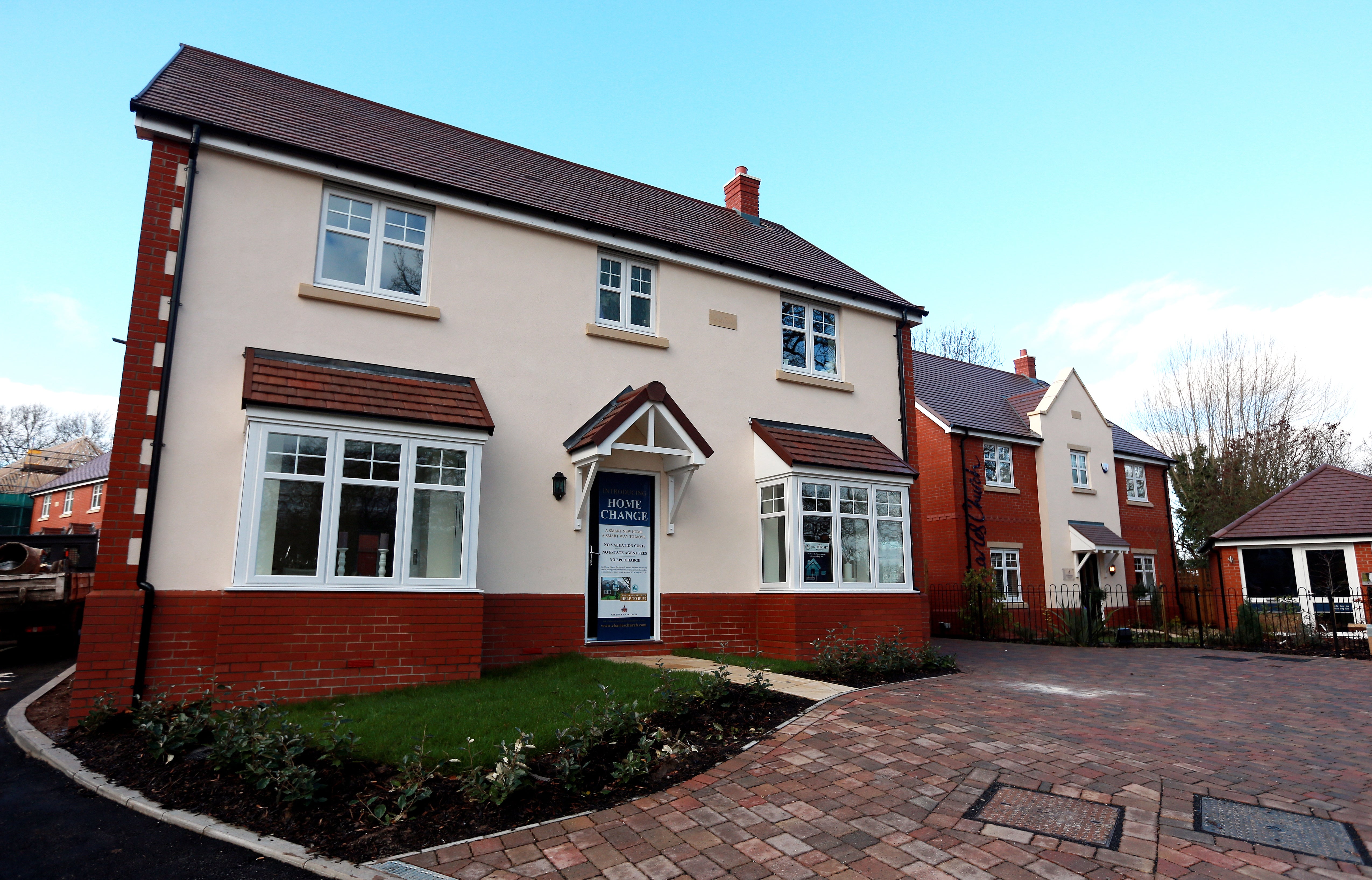House prices increasingly out of reach for those who can’t call ‘bank of mum and dad’
The government has contributed in the worst possible way by stoking demand but not addressing supply, baking inequality into the system

The runaway train of Britain’s housing market might have slowed down a little in January, but it’s still zipping along like one of the high-speed locomotives we’re supposed to be getting for HS2 (probably sometime in the next century given the way these projects tend to go in this country).
Halifax said prices had inched ahead by just 0.3 per cent in the first month of 2022, the smallest such increase since last June. But the average price paid still hit a new record of £276,759, and that’s still up by 9.7 per cent on the year.
The annual rate of growth has barely changed, and is running at more than three times the rate at which wages are rising.
In theory, the rate of growth ought to continue slowing. The great cost-of-living squeeze has really only just got started, with fuel prices set to jump in April (even with government measures to limit the impact), food prices and inflation yet to peak, Boris Johnson’s national insurance rise on its way, and a couple of interest-rate rises likely to be in the pipeline, too.
That unlovely combination should bring the problem of affordability to bear on an overheating market.
The average house price to average earnings ratio, per Halifax and IHS Markit, now stands at 6.6 times, itself a near record. As a point of comparison, between September 1992 and October 1999 it was below 3.5. It didn’t get above 5 until March 2003, breaching 6 for the first time just before – surprise, surprise – the financial crisis of 2008 briefly put the market into the freezer.
However, while a marked lack of affordability was a problem throughout 2021, it did nothing to cool the ardour of first-time buyers. In a review of the year, Halifax reported a 35 per cent increase in these transactions.
The lender’s MD, Russell Galley, said that younger people “face significant barriers to home ownership as deposit requirements remain challenging”. There’s your classic British understatement. The average first-time buyer was 32, and put down a deposit of £53,935 on their first property costing £264,140.
How does someone find a way to put nearly £5,000 a year aside during their 20s, when they have to allow for rent, and student debt, and rent, and credit card bills, and living costs, and rent?
The answer is that they don’t. Instead, those that can just pick up the phone and take out a line of credit with the speciality lender otherwise known as the Bank of Mum & Dad, which offers preferentially low interest rates, or maybe no interest rates, or maybe the sort of financing that’s a loan in name only. Pay us back when you can, kiddo, and don’t worry if you can’t.
Government interventions have only served to exacerbate problems with the market. The various “help to buy” schemes were supposed to address the problem of unaffordable deposits by underwriting 95 per cent loans. That would allow a borrower to buy Halifax’s average first-time buyer property with a deposit of just £13,000. Much more manageable, but you’ll still need a fancy income to be able to afford the repayments on a £250,000 loan, especially now that interest rates are rising.
The trouble with the government’s schemes is that they have served to stimulate demand without addressing the other side of the coin: a lack of supply, especially in the affordable bracket.
A continuing lack of supply will likely create a high floor for the market, even if the multitude of cost pressures bearing down on buyers start to bite. The Bank of Mum & Dad won’t be short of business, that’s for sure.
If you’re fortunate enough to have parents who are willing and able to help, you can buy even in a market that’s hotter than a Texas tamale chilli pepper, in the middle of an otherwise brutal economy for all but the wealthiest.
If you’re not, then you’re probably going to be renting until late into your thirties, maybe your forties.
You know who to blame for baking inequality into the system.
Join our commenting forum
Join thought-provoking conversations, follow other Independent readers and see their replies
Comments
Bookmark popover
Removed from bookmarks